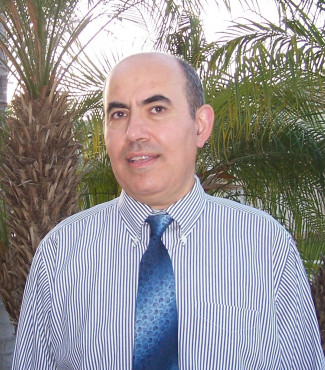Invitation à la SOUTENANCE publique de THESE d'Onnik KIREMITLIAN : The corpus of armenian texts attributed to Marutha of Tagrit

Description
Pour l’obtention du grade de Docteur en Langues et lettres
Le lundi 25 novembre 2019 à 14H30
UCLouvain - Salle du Conseil FIAL
Collège Erasme
Place Blaise Pascal 1, 1348 Louvain‐la‐Neuve
THE CORPUS OF ARMENIAN TEXTS ATTRIBUTED TO MARUTHA OF TAGRIT
In the Armenian manuscript tradition exists a sizeable amount of scattered texts that are ascribed to a certain Marutha, unidentified whether he is Marutha of Martyropolis (4th‐5th cc.) or Marutha of Tagrit (7th c.). As to date no serious scholarly research was undertaken to authenticate the authorship of these texts, conclusively ascertain which of them belong to Marutha of Tagrit, and distinguish the spurious ones from those wrongly ascribed to Marutha. Thus the aim of the present thesis is to establish a corpus of Armenian texts that would certainly and verifiably belong to the pen of Marutha of Tagrit, and prepare a critical and translated edition of his works.
Among the works attributed to Marutha of Tagrit in the Armenian manuscript tradition we have only the Homily on the New Sunday with its complete Syriac original, and except for few fragments in Garshuni Arabic, all the other texts that are verifiably from the pen of Marutha of Tagrit are not attested in Syriac manuscripts, and the conjecture is that they are preserved only in Armenian.
There is sufficient Armenian manuscript evidence to conclusively suggest that these translations from Syriac into Armenian were achieved in the fourth and last great phase of the translation activities of the period from ca 1103 to 1271, especially thanks to the collaborative efforts of the Armenian erudite scholar, ecclesiastic and court envoy Vardan Areweltsi (ob. 1271) and an unknown Syriac scholar who was active in the period’s intellectual life in the Cilician Kingdom of Armenia. Close philological scrutiny of these texts enhances our knowledge of the prevalent methods of translation adopted during this phase of Armenian‐Syriac literary interactions, and presents to the scholarly community a hitherto unknown and important facet of Eastern Christian patristics.
Le jury est composé de Mesdames et Messieurs les professeurs :
Lambert ISEBAERT (UCLouvain), Président
Bernard COULIE (UCLouvain), Promoteur et Secrétaire
Andrea SCHMIDT (UCLouvain), Lectrice
Jean‐Marie AUWERS (UCLouvain), Lecteur
Valentina CALZOLARI (Université de Genève), Lectrice externe
 Français
Français  Nederlands
Nederlands  Հայերեն
Հայերեն